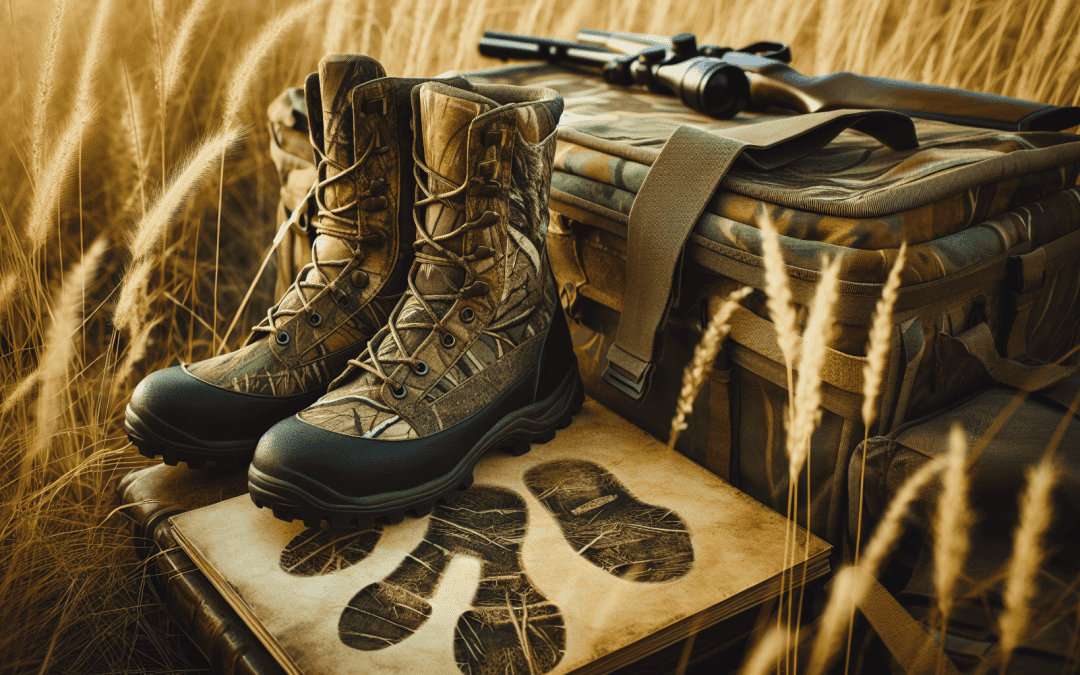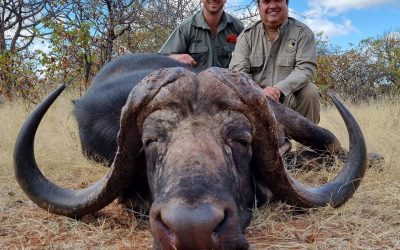So you’ve decided to embark on an exciting hunting adventure in the vast and breathtaking landscapes of Africa. But before you start envisioning yourself tracking down majestic animals, it’s important to think about what to pack for your trip. From essential gear like hunting rifles, camouflage clothing, and binoculars, to practical items like insect repellent and sturdy boots, ensuring you have everything you need will enhance your experience in the African wilderness. When embarking on a hunting trip to Africa, it’s essential to pack the necessary clothing and gear to ensure a comfortable and successful adventure. From camouflaging yourself in the bush to protecting yourself from the elements, here’s a comprehensive packing list to help you make the most of your hunting expedition.
Clothing
Camouflage Clothing
Camouflage clothing is essential when hunting in Africa’s diverse landscapes. It helps you blend into your surroundings, increasing your chances of a successful hunt. Pack a variety of camouflage patterns to match different environments you may encounter, such as woodland or savannah.
Neutral-colored Clothing
In addition to camouflage, packing neutral-colored clothing is important for times when you are not actively hunting. These earth-tone garments help you remain inconspicuous and reduce the chance of spooking wildlife when you’re out exploring or setting up camp.
Long-sleeved Shirts
Long-sleeved shirts are not only essential for protection against the sun and insects, but they also help to reduce scratches and abrasions from vegetation. Opt for lightweight, breathable fabrics to keep you cool and comfortable in the African heat.
Trousers
When it comes to trousers, choose durable, quick-drying options that provide protection against thorny bushes and biting insects. Consider convertible pants with zip-off legs for added versatility in different weather conditions.
Rain Gear
Africa’s weather can be unpredictable, so packing a reliable set of rain gear is crucial. Look for waterproof and breathable jackets and pants to keep you dry during unexpected downpours, ensuring your hunting experience isn’t hindered by inclement weather.
Hiking Boots
Investing in a pair of high-quality, comfortable hiking boots is essential for any hunting trip in Africa. Opt for waterproof boots with good ankle support to navigate through various terrains and climates while keeping your feet dry and protected.
Socks
Don’t underestimate the importance of good socks. Choose moisture-wicking, cushioned socks to keep your feet comfortable and prevent blisters during long days of hunting. Pack enough pairs to last you throughout your trip.
Hat
Packing a hat with a wide brim is essential for sun protection. Whether it’s a baseball cap or a wide-brimmed safari hat, choose one that shields your face and neck from the scorching African sun.
Gloves
Having a pair of gloves is essential for handling equipment, protecting your hands from thorns and sharp objects, and providing warmth during early mornings and late evenings. Choose gloves that allow for dexterity while keeping your hands protected.
Scarf
A scarf may seem like an accessory, but it can serve multiple purposes in the African wilderness. Use it to protect your neck and face from sunburn, shield yourself from biting insects, or even as a makeshift bandage in case of an injury.
Protection
Insect Repellent
Africa is home to a wide variety of insects, including mosquitoes, ticks, and flies. Packing a reliable insect repellent with high levels of DEET is crucial to minimize the risk of insect-borne diseases and discomfort during your hunting adventures.
Sunscreen
The African sun can be extremely harsh, and protection against harmful UV rays is of utmost importance. Choose a broad-spectrum sunscreen with a high SPF and apply it generously throughout the day to protect your skin from sunburn and potential long-term damage.
Sunglasses
Good-quality sunglasses not only protect your eyes from harmful UV rays but also reduce glare and improve visibility in bright conditions. Opt for polarized lenses to enhance your ability to spot game in different lighting conditions.
First Aid Kit
No hunting trip is complete without a well-stocked first aid kit. Pack essentials such as bandages, antiseptic ointment, painkillers, and any personal medications you may require. Also, consider including items specific to the environment you’ll be in, such as snakebite kits or specialized ointments.
Prescription Medications
If you have any pre-existing medical conditions or require prescription medications, ensure you have an ample supply for the duration of your trip. Consider carrying a written prescription or a doctor’s note, especially for controlled substances.
Antimalarial Medication
Depending on the region you’ll be hunting in, antimalarial medication may be necessary to protect yourself against malaria-carrying mosquitoes. Consult with your healthcare provider well in advance of your trip to determine if antimalarials are recommended.
Immunizations
Make sure you are up-to-date on routine vaccinations and consider any additional vaccinations recommended by your healthcare provider for travel to Africa. This includes vaccines for diseases such as yellow fever, typhoid, hepatitis A, and tetanus.
Equipment
Rifle
Your choice of rifle will depend on the specific game you plan on hunting. Ensure that your rifle is properly sighted, in good working condition, and that you are proficient in its use. Familiarize yourself with local firearms regulations and ensure proper permits are obtained.
Ammunition
Carry an adequate supply of ammunition that is appropriate for the game you are hunting. Be aware of any restrictions on ammunition type or caliber determined by local regulations.
Hunting Knife
A high-quality hunting knife is an indispensable tool for field dressing and processing game. Choose a durable, sharp knife with a comfortable grip that can handle the demands of African hunting.
Binoculars
A good pair of binoculars is essential for spotting game from afar. Look for binoculars with a magnification power suitable for the terrain you’ll be hunting, while also considering durability and weight.
Range Finder
A range finder helps you accurately determine the distance between you and your target. This tool ensures precise shot placement, increasing your chances of a successful hunt. Choose a compact and reliable range finder to assist you in your hunting endeavors.
Camera
Capture the memories of your African hunting adventure by packing a reliable camera. Choose a rugged, waterproof camera that can withstand the elements and potentially rugged hunting conditions.
Batteries
Ensure you have an ample supply of batteries for all your electronic devices, such as rangefinders, flashlights, and cameras. Consider investing in rechargeable batteries to minimize waste and reduce the risk of running out of power.
Flashlight
A quality flashlight is essential for navigating your way through the African bush during early mornings or late evenings. Choose a durable and reliable flashlight with adjustable brightness settings and a long battery life.
Backpack
A comfortable and durable backpack is essential to carry all your gear and supplies during your hunting expedition. Look for a backpack with multiple compartments, adjustable straps, and additional features like hydration compatibility for convenience.
Accessories
Water Bottle
Staying hydrated is crucial in the African heat. Pack a reliable, BPA-free water bottle that can hold a sufficient amount of water and is easy to refill on the go.
Snacks
Pack high-energy snacks such as trail mix, energy bars, and jerky to fuel your hunting endeavors. Choose snacks that are lightweight, non-perishable, and provide a quick boost of energy when needed.
Maps and Compass
Always have a physical map and compass as backups to any electronic navigation devices you may be using. Familiarize yourself with the terrain and practice basic map-reading skills before your trip.
Multi-tool
A multi-tool is a versatile tool that can come in handy in various situations. Whether it’s cutting, opening, or repairing equipment, a multi-tool is a convenient and compact addition to your hunting gear.
Firestarter
Having a reliable firestarter, such as waterproof matches or a lighter, is essential for various purposes, including cooking, warmth, and signaling for help in case of emergencies. Pack at least two firestarting options to ensure redundancy.
Blind or Tree Stand
Depending on your hunting strategy, consider packing a portable hunting blind or tree stand to improve concealment and increase your chances of a successful hunt. Choose lightweight and easy-to-assemble options that suit the terrain you’ll be hunting in.
Trekking Poles
Trekking poles provide stability and support while traversing different terrains. They reduce fatigue, minimize strain on joints, and can be especially helpful when hiking through rough or uneven terrain.
Game Bags
Game bags are essential for transporting harvested game while preserving its quality. Look for durable, breathable bags that are easy to clean and resist odors to ensure your hard-earned game remains in optimal condition.
Cooler
If you plan to harvest big game or have extended hunting trips, a cooler is necessary to store meat and keep it fresh. Look for a cooler with adequate insulation, durable construction, and a size suitable for your needs.
Ziploc Bags
Ziploc bags are versatile and useful for a variety of purposes, from organizing small items to keeping gear dry and protected. Pack a selection of different sizes for added convenience.
Personal Hygiene
Toothbrush and Toothpaste
Maintaining oral hygiene is important even in the wild. Pack a travel-sized toothbrush and toothpaste to ensure fresh breath and oral health during your hunting trip.
Soap
Choose biodegradable, scent-free soap for washing your hands, face, and body during your hunting expedition. Avoid scented options that could potentially alert game to your presence.
Shampoo
Pack a small bottle of shampoo to keep your hair clean and fresh. Look for biodegradable options that are gentle on the environment.
Deodorant
Using scent-free deodorant helps minimize your scent profile while hunting. Choose one that doesn’t contain any strong fragrances that could potentially scare away game.
Towel
Pack a lightweight, quick-drying towel for personal hygiene and drying off after cleaning or swimming. Microfiber towels are an excellent option due to their compact size and fast-drying properties.
Toilet Paper
Ensure you have an adequate supply of toilet paper for your trip, as it may not always be readily available in remote hunting locations. Pack it in a waterproof bag to keep it dry and protected.
Hand Sanitizer
Maintaining proper hygiene is crucial, especially when access to running water is limited. Keep a travel-sized bottle of hand sanitizer or sanitizing wipes to keep your hands clean and germ-free.
Wet Wipes
Wet wipes are useful for freshening up and cleaning your hands, face, and body while in the field. Look for biodegradable options and pack them in a resealable bag for convenience.
Feminine Hygiene Products
If you identify as female, ensure you have an ample supply of feminine hygiene products for the duration of your hunting expedition. Consider packing individually wrapped, discreet options for easy storage.
Trash Bags
Pack a few extra trash bags to dispose of any waste responsibly. Always leave your hunting area cleaner than you found it by properly disposing of any trash generated during your trip.
Documents
Passport
A valid passport is a must when traveling internationally, including Africa. Ensure your passport has at least six months of validity beyond your anticipated departure date from Africa.
Visa
Depending on your country of citizenship and the specific African country you’ll be visiting, you may require a visa. Check the visa requirements well in advance and obtain the necessary visa(s) before your trip.
Airline Tickets
Print or have electronic copies of your airline tickets readily accessible for check-in and boarding procedures. Double-check your flight details to avoid any surprises or delays.
Travel Insurance
Protect yourself against unforeseen circumstances by purchasing travel insurance that covers medical emergencies, trip cancellations, and lost or stolen belongings. Ensure the coverage extends to hunting activities and any necessary medical evacuations.
Driver’s License
If you plan on driving or renting a vehicle during your hunting trip, ensure you have a valid driver’s license from your home country. It’s also advisable to obtain an International Driving Permit (IDP) as an additional form of identification.
Hunting Permits
Research and obtain the necessary hunting permits and licenses in advance, following the regulations of the specific African country you’ll be hunting in. Ensure you have all the required documentation to legally hunt game.
Emergency Contact Information
Compile a list of emergency contact numbers, including your local embassy, the nearest hospital or medical facility, and your designated emergency contact back home. Keep this information easily accessible and share it with someone who is not on the trip.
Communication
Mobile Phone
Carry a reliable mobile phone with good coverage, and ensure it is unlocked and compatible with local SIM cards if you plan on purchasing one upon arrival in Africa. Familiarize yourself with the phone’s features and any international calling or roaming plans.
Chargers
Don’t forget to pack the necessary chargers for your mobile phone and any other electronic devices you’ll be using. Consider bringing an extra charger or a portable power bank for extended periods without access to electricity.
Portable Power Bank
A portable power bank is an excellent backup power source during your hunting expedition. Ensure it is fully charged before your trip, as it can help keep your essential devices functional when access to electricity is limited.
Two-way Radios
Two-way radios are useful for communication within your hunting party, especially in areas with limited cell phone reception. Choose radios with a long range and good battery life to stay connected with your group.
Satellite Phone
In remote hunting areas with no cell phone coverage, a satellite phone can be a lifeline in emergencies. Consider renting or purchasing one if you’ll be hunting in an area where traditional communication methods are unreliable.
Phone Numbers and Addresses
Keep a physical or electronic copy of important phone numbers and addresses, including your hunting outfitter, accommodations, emergency services, and your home country’s embassy. This information will be useful in case of any unforeseen circumstances during your hunting trip.
Food and Water
Water Purification Tablets
Having water purification tablets is essential in case the only water available for consumption is from potentially unsafe sources. These tablets can help eliminate harmful bacteria and parasites, ensuring safe drinking water.
High-Energy Snacks
In addition to hunters’ meals, pack a variety of high-energy snacks to keep you fueled during long days in the field. Nuts, dried fruits, energy bars, and jerky are excellent options that provide a quick boost of energy.
Instant Meals
Instant meals, such as dehydrated or freeze-dried options, are convenient and lightweight, making them ideal for hunting trips. Choose meals that require minimal preparation and offer a balanced nutrition profile.
Dried Fruits and Nuts
Dried fruits and nuts are nutritious and lightweight snacks that provide essential vitamins, minerals, and healthy fats. Pack a variety of options to keep your energy levels up and satisfy your hunger.
Canned Goods
Consider packing a few cans of your favorite meats or ready-to-eat meals as emergency rations. These can come in handy in case of unforeseen circumstances or when fresh food is not readily available.
Water Filter
While packing water purification tablets is essential, having a reliable water filter can provide an additional layer of protection. Filters allow you to clean water from natural sources, ensuring your hydration needs are met.
Cooking Utensils
Carry basic cooking utensils such as a pot, pan, spatula, and utensils for preparing and enjoying meals in the field. Opt for lightweight, compact options that are easy to clean and store.
Gas Stove
A portable gas stove is invaluable for cooking meals while camping or hunting in the field. Ensure you have enough fuel canisters to last your trip, and practice using the stove before your departure.
Campfire Cooking Equipment
If open fires are allowed in your hunting area, pack appropriate campfire cooking equipment, such as grills or tripods for cooking over flames. Always adhere to local fire regulations to minimize the impact on the environment.
Sleeping Gear
Tent
Invest in a reliable tent that offers adequate protection from the elements and wildlife. Look for a lightweight, durable option that is easy to set up and has enough space to accommodate you comfortably.
Sleeping Bag
Choose a sleeping bag that suits the temperatures and climate of your hunting area. Consider factors such as insulation, weight, and packability to ensure a good night’s sleep while staying warm and comfortable.
Sleeping Pad
A sleeping pad provides insulation, cushioning, and comfort when sleeping on the ground. Opt for lightweight, inflatable options that help regulate body temperature and provide a barrier against the cold ground.
Pillow
While not essential, a comfortable camping pillow can greatly improve your overall sleep quality and provide added comfort during your hunting expedition. Choose a packable pillow that suits your personal preferences.
Earplugs
As a hunter, you will likely encounter unexpected noises during your trip, whether from wildlife or other sources. Earplugs can help you get a restful sleep by reducing noise disturbances and ensuring maximum comfort.
Eye Mask
If you are sensitive to light or hunting in areas where the daylight hours are long, an eye mask can help you get uninterrupted sleep by blocking out unwanted light and ensuring a more restful sleep.
Ground Cloth
A ground cloth is a versatile accessory that can be used to protect the bottom of your tent from sharp objects or to create a dry sitting area outside your tent. Choose a lightweight, waterproof option to ensure durability.
Miscellaneous
Cash
While credit cards are widely accepted, it’s always a good idea to carry some cash as a backup. Ensure you have small bills in the local currency for tips, small purchases, or emergencies.
Credit Cards
Carrying one or two credit cards provides a convenient and secure method of payment during your hunting trip. Check with your bank regarding international transaction fees and notify them of your travel plans to avoid any issues.
Knife Sharpening Kit
A sharp knife is essential for various tasks during your hunting trip. Pack a knife sharpening kit to maintain the blade’s sharpness and ensure your knife remains functional throughout your journey.
Extra Batteries
In addition to the batteries necessary for your equipment, packing extra batteries for flashlights, headlamps, and any other battery-operated devices is vital. Be prepared for unexpected battery drain or equipment failure.
Headlamp
A headlamp provides hands-free illumination, allowing you to navigate in low-light conditions or perform tasks during the night. Choose a headlamp with adjustable brightness levels and a comfortable headband.
Field Dressing Gloves
Field dressing gloves provide protection when handling game carcasses, reducing the risk of contamination or infection. Choose disposable or reusable gloves made of durable, puncture-resistant material.
Hunting Tags
Ensure you have the necessary hunting tags and attach them appropriately to any harvested game. It is essential to comply with local regulations and properly tag all hunted animals.
Emergency Whistle
Carrying an emergency whistle is a lightweight and effective way to signal for help in case of an emergency or getting lost. Attach the whistle to your backpack or gear for easy access during critical situations.
Rope
Rope is a versatile tool that can be used for securing gear, building shelters, or assisting in various hunting tasks. Pack a lightweight and durable rope that can handle the demands of your hunting adventures.
Repair Kit
Having a small repair kit with tools such as a multi-tool, duct tape, and zip ties can be invaluable in case of gear or equipment malfunctions. Be prepared to make basic repairs to ensure your hunting trip continues smoothly.
By packing these essential items under each category, you’ll be well-prepared for a hunting trip to Africa. Remember to thoroughly research your destination, follow all hunting regulations, and prioritize safety and conservation throughout your expedition. Happy hunting!











